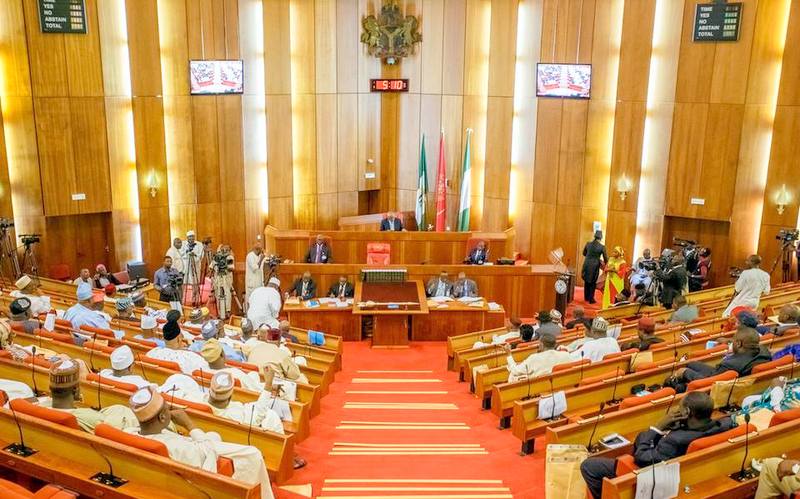Members of the Senate Press Corps are at loggerheads with the leadership of the Senate over moves to restrict coverage of its proceedings to six television stations, making all the cameramen to boycott coverage of the plenary altogether.
The development came less than 24 hours after Senate President Bukola Saraki held a chat with journalists at the Senate to mark the World’s Press Freedom Day, where he assured the press of the freedom to carry out their responsibilities.
Thirteen television stations had been accredited to gain entry into the chamber to cover plenaries, but the coverage has now been restricted to six TV stations comprising the Africa Independent Television, Nigerian Television Authority, Channels Television, Silverbird Television, Television Continental and the in-house New Age.
The Senate Press Corps, however, protested against the restriction.
Chairman of the corps, Mr. Cosmas Ekpunobi, in a petition to the Chairman, Senate Committee on Media and Public Affairs, Senator Sabi Abdullahi, urged the management of the National Assembly to rescind the decision.
The petition read in part, “The attention of the Senate Press Corps leadership has been drawn to a decision by the Senate bureaucracy to further reduce the number of television crews covering Senate plenary from 13 to six. The change came into operation today, precipitating the reported boycott by the cameramen today of all Senate proceedings.”
“Recall, sir, that we had a meeting on Wednesday with the Clerk of the Senate on the subject matter, during which he raised some issues and alleged misconduct by some of our colleagues. The leadership of the Senate Press Corps, however, accepted to call our erring members to order and to get back to the clerk for further action. We expected the clerk to also rescind his decision pending the outcome of our meeting with the cameramen today.
“We want to reiterate here that the Senate Press Corps leadership will never condone any unprofessional conduct by any of our members, even though we have been told that there are other cameramen covering the chamber who are not our registered members but are brought in by principal officers and other senators. We had since referred the said misconduct to our disciplinary committee for necessary action.”
Ekpunobi noted that the issue could still be resolved through dialogue.
He added, “We do not also want to subscribe to certain insinuations in some quarters that the new policy is another step to gag journalists covering the upper chamber, especially as the Senate President paid us a visit on Wednesday to celebrate the World Press Freedom Day.
“We have been repeatedly told that there is no parliament in the world where cameramen are allowed into the chamber. But we are also aware that such chambers, as mentioned, have functional central pool units where broadcast cameramen using latest television technologies such as Ultra High Definition cameras operate to deliver quality feeds. And until such equipments are installed with the requisite broadcast professionals to man them, we plead for a stay of execution.”
Ekpunobi, therefore, urged Abdullahi to prevail on the Senate bureaucracy and leadership to reverse the policy. “In the meantime, we see the development as very unhealthy and a recipe for avoidable friction between the media as a professional body and the National Assembly,” he added.

